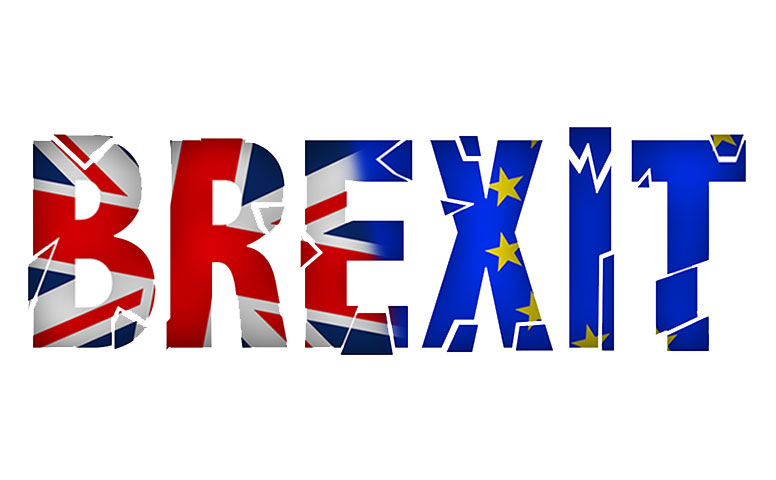12 September 2019
Brexit – Que se passe-t-il?
Nous ne comprenons pas.
By Richard Pooley

It was the question I knew must come but was dreading: “Richard. Brexit. What’s going on? We don’t understand.” It came in the middle of dinner on a warm evening a few days ago. We were seven around a table out on the lawn of neighbours in our village in France. Six French and me, a Brit. Only one was unknown to me, a woman whose family had once owned the chateau above a nearby village but who, recently widowed, now lived more modestly in the village itself. My hosts, now retired, both used to be university librarians in Paris. One couple live in and manage one of the most imposing, though half-ruined, castles in southern France. That leaves the husband of the woman who still owns and used to run our village pharmacy and who, I discovered the next day, had somehow got stuck in her car coming down a too-narrow road and hence not got back in time to join us. A pity if past experience is any guide. A bright woman with a no-nonsense communication style, Babette would have told us exactly what she thought of the shenanigans going on at Westminster.
So, not a representative sample of French citizenry. But still, intelligent people, well-disposed towards the British, and genuinely puzzled by what is going on in the UK. And fearful for our future.
One of the sillier statements on Brexit made at first by Remainers but now by Leavers too is that Britain has become a “laughing-stock” around the world. I have found no evidence of this; certainly not in France. And I did not sense any mockery around that French dinner table.
There is much amusement at the Speaker’s “Awdour! Awdour!” and of the strange conventions of Parliamentary debate. But overall I have found sympathy for what British politicians are putting the British people through. France, of course, like the UK, has a representative democracy. Deputies are not mandated by their constituents to vote as the majority of them demand. But French culture is far more heirarchical than the British one. If your party leader tells you to vote a particular way, woe betide you if you don’t. The French media don’t appear to think it odd or wrong that Boris Johnson threw 21 MPs out of the Conservative party because they voted against the Government. What they found strange is that Theresa May did not do the same to Johnson and his European Research group pals each time they voted against the agreement she had secured with the EU. How can you govern effectively if you cannot control your own MPs?
I struggled to answer these questions and not only because I have as little idea of what is really going on as everyone else in Britain. Trying to explain the inexplicable in English is bad enough but in my fractured French it became near impossible. But I soon discovered that being forced to listen rather than speak at least made me learn what they thought of it all. Also, they wanted to go back to the pros and cons of Brexit, something which we Brits seem to have forgotten about. We’re so obsessed with “the will of the people” (Leavers) and “the sovereignty of Parliament” (Remainers) that we seem no longer to examine why we voted the way we did in the 2016 Referendum. I, a Remainer, found myself putting the Brexit case, albeit briefly and not very smoothly:
The UK will save money. Several million euros a year. The UK will take back control of its laws and its borders. We will not be ruled by unelected bureaucrats in Brussels. We will be free of the European Court of Justice. We can decide how many people can come into the UK. We can negotiate our own trade agreements. The UK does not want to be part of a European superstate.
It was the last item on this menu that seemed to puzzle them the most. Why did the British think that the EU would become a super-État? First, they had to know what I meant by this portmanteau word. It was new to them. Greater political and economic union? Surely, I was joking.
Their reaction confirmed what opinion polls and mainstream media in France have been saying for ages. Most French are no more enthusiastic about ever closer union than the British are. When immediately after the 2016 referendum the French and German governments proposed that countries in the EU should give yet more power – fiscal, military and legal – to the EU institutions, it provoked fury in eastern and northern Europe, and in France itself. Macron won the French presidential election a year later on a pro-EU platform. But he won because he was a young disruptor, who seemed to have a plan for France, up against an incompetent debater whose National Front party was anti-EU and anti-immigration but not clearly pro anything. During that election and since, Macron has pushed for greater cooperation among EU countries, especially between France and Germany. He has criticised those countries – Poland, Hungary, Italy – who have refused to do Brussels’ bidding. But at the same time he’s had to face down the gilets jaunes in his own country, much of whose anger has been directed at unelected EU bureaucrats as well as at Macron himself. The one French presidential candidate who was unambiguously arguing for Frexit got less than 1% of the vote. But that does not mean the French want to hand over more power to the EU institutions. Quite the opposite.
The conversation about Brexit at that dinner finished with a lament from Camille, the guardian of the half-ruined castle: “We should have stuck with the original six countries. We had the same mind, the same purpose. It’s possible for six to work together, to agree. But twenty-eight or twenty-seven. Impossible. We should never have let you join!” We all laughed and moved on to a more pleasant subject: the deliciousness of the summer pudding I had made from fruit grown in our potager. Proof that the Brits could get something right.
I have been thinking about that short dinner conversation ever since. I realised I was glad that I had not been asked why I had voted Remain. It was not easy to answer it in a rational way in June 2016. The hardest question then posed by a Leaver friend was: “If you were being asked to join the EU rather than leave it, would you join?” I had told him Yes but without a huge amount of conviction. I was not alone, I believe, and that may be why we Remainers lost. Just like Marine Le Pen against Macron, those leading the Remain campaign had no vision to inspire people to vote positively for staying in the EU. We knew why we shouldn’t leave (and still do, No Dealers); but not why we should remain.
Last week, John Watson, our esteemed editor, argued that “If the EU is to survive it will have to develop further and become some form of superstate.” I disagree. He went on: “To pretend that the EU will survive in its current looser form is surely unrealistic.” Again, I disagree. However, he urged Jo Swinson, leader of the Liberal Democrats, and her Remainer allies to “paint us a picture of their version of Elysium*.” Here, I agree (phew), and as a Lib Dem myself I hope I might be able to apply a brushstroke or two. Certainly, without a clear and inspiring pro-EU vision, the Liberal Democrats and the Greens will fail in their quest to have the UK remain in or rejoin the EU.
What those Elysian Fields* should look like I shall come back to next week.
*According to Homer, Elysium or the Elysian Fields were to be found on the western edge of the Earth. Later poets named them the Isles of the Blessed and placed them in the western ocean at the end of the Earth. Taking into account the world view and geographical knowledge of the Ancient Greeks, that puts them where the British Isles are now.


